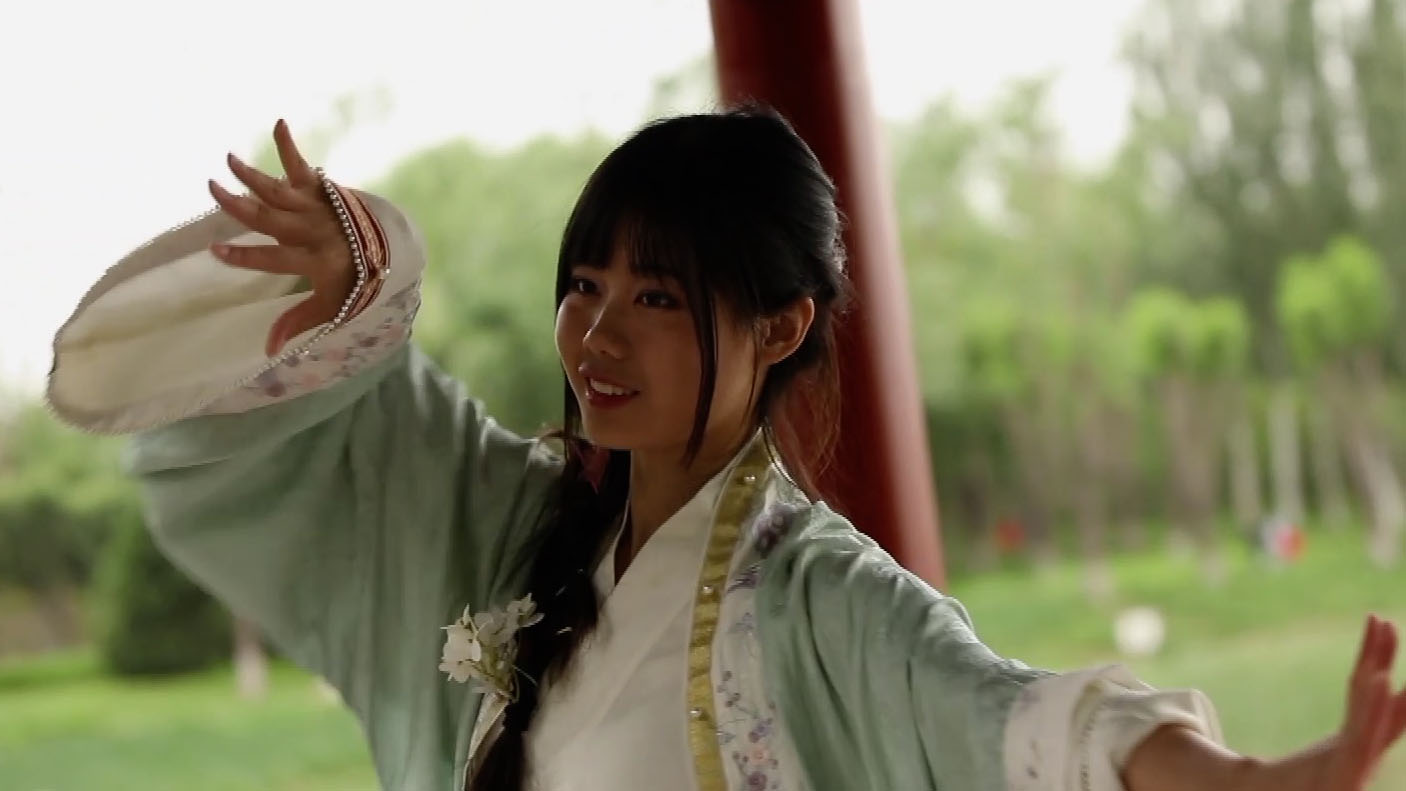05:23

The onset of the coronavirus pandemic hit the arts and leisure sector particularly hard, with venues closed down and restrictions imposed on public gatherings and outdoor activities. To mitigate the inevitable impact on their business, companies and organizations have gone online to maintain their public presence.
With over a thousand registered members, Hanfu Beijing is the largest organization in the city dedicated to promoting traditional Han clothing and preserving Han culture. However, due to the coronavirus outbreak in January, its plans for 2020 were suspended as the pandemic put a stop to any large-scale outdoor activities.
Still, a small group of members continued to meet in a Beijing park, to dance together. A tentative relaxation of restrictions in recent weeks held out the prospect that the organization might resume its regular activities, involving more of its members. However, the reemergence of the coronavirus has dealt a blow to those hopes.
When the coronavirus first struck, with most of the association's activities no longer permitted under the strict prevention and control measures, those working full-time found themselves with no income. Particularly hard-hit was 27-year-old Huangfu Yuehua. She has been a member for 11 years and was appointed the organization's head at the beginning of 2020. She felt the impact of the epidemic more than most. "My standard of living has plummeted," Huangfu explained. "I've had to cut back on my spending on food. I've even begged some food off my mom. It's the only way I can keep going."
Huangfu is responsible for organizing Hanfu Beijing's offline activities, and also spent time visiting schools to teach archery. "But due to the epidemic, the kids can't go to school, and no activities can take place," she said
In response to the lockdown, members thought up ways of using the internet to reach out to people and gain new followers. But without face-to-face activities, they failed to reach a wider audience. "We don't find online activities very helpful," said Haungfu. "Since we've been online, participation and enthusiasm haven't been so high. The number of people taking part isn't very promising."
Yet, Hanfu's long-term future seems assured. Livestreaming has helped Hanfu stores increase online sales, and its stores accelerated their move online so as to reach customers who were still unable or unwilling to go out shopping. "Last week, a Hanfu store had some new clothes in stock. In a single afternoon, it took over 20 million yuan (2.83 million U.S. dollars). They sold over 400,000 items of clothing. So I'm not worried at all," said Huangfu.
The recent emergence of new cases in Beijing hasn't dampened the optimism. Another Hanfu Beijing member, Xifeng, explains: "Coronavirus infections will continue to slow in the second half of the year. I believe things will get back on track."
The girls are determined to keep on dancing and are hopeful that, in the near future, as Beijing opens up for good, they will be joined by more people.